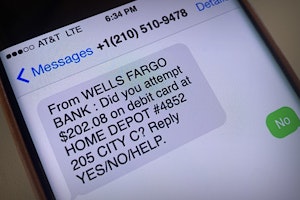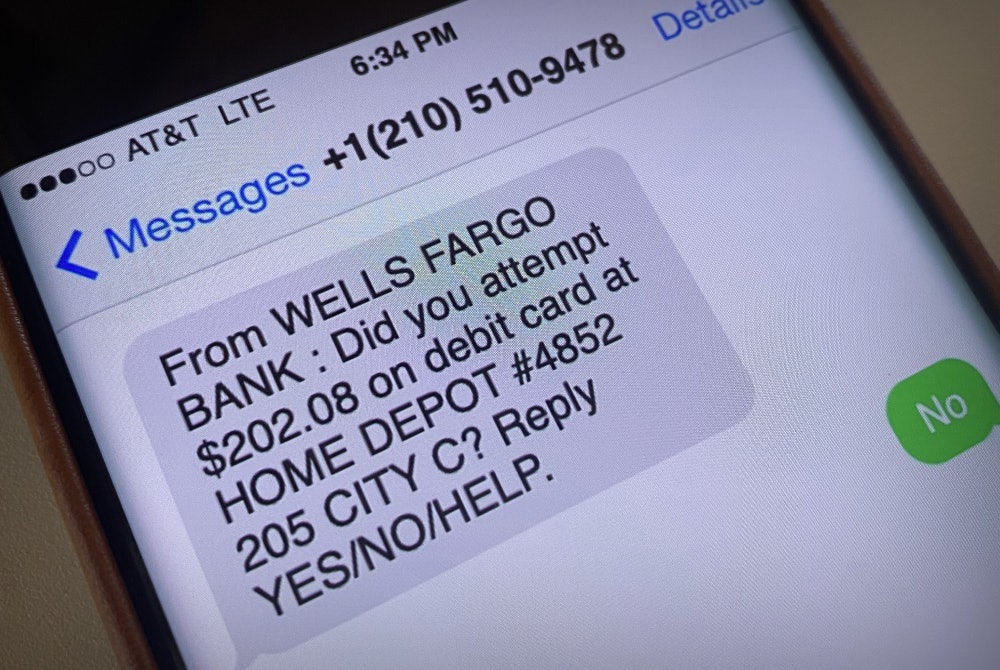Phone Fraud In Depth
United States Scam Call Statistics 2020
Source: Comparitech
- Red Flags of Scam Calls
- Most Common Types of Phone Scams
- How to Beat Phone Scams
- Fallen for Scam Calls?
Phone scams represent a wide variety of scam calls, where fraudsters try to trick you out of personal information over the phone.
The problem has become so widespread it's been given its own nickname: Vishing, which is short for "voice phishing," or the over-the-phone version of many classic scams that result in extortion or identity theft.
While telemarketing and even scam calls have existed for nearly as long as phone service, innovations like the "No Call" list have reduced the problem. Yet, proving once again their adaptability, scammers have begun to overcome such blocks, learning even more tricks to separate you from your money and personal information.
As such, phone scams continue to be a big problem, responsible for roughly 40% of all phone calls made in the U.S. in 2019. And the pandemic has only exasperated the issue, with the number of scam call victims shooting up 270% in 2020, accounting for an average loss of $182 per person.
Still, there are some signs and typical plots to look out for that might save you from answering a call from a scam phone number.
Red Flags of Scam Calls
Phone scams are constantly adapting, but there are still a few common red flags to look out for, including:
- Any unsolicited call from someone claiming to work for a government agency, public utility service, major tech firm, or well-known company.
- Unsolicited calls to help you with a debt or loan.
- Calls pitching deals too good to be true.
- Calls about problems you never reported.
- Calls for awards/sweepstakes you never entered.
- A sense of urgency to make a decision or threatening language.
- Anyone asking for sensitive information, including your:
- Social Security number.
- Bank information.
- Credit card information.
- Passwords or PIN codes.
- Any type of robocall.
These represent the most common red flags of scam calls, but scammers can use all sorts of other tricks. Remember: The most important indicator is your gut. If something feels off, it probably is.
Most Common Types of Phone Scams
Scam calls can come in many different forms, with scammers adopting any number of alter egos to try to trick you.
Still, there are a few plots that get recycled over and over again.
Phone Calls from Imposters
Imposter phone scams involve the scammer pretending to be someone else entirely. They'll adopt the persona of a known and trusted entity, such as a government agency, well-known business, or utility provider.
They may inform you that you're eligible for a new program, that there's something wrong with your account, or that you have a bill due, among other claims. But all of these lines are just excuses to get you to divulge personal information that the scammer can use to steal your identity.
Debt Relief/Loan Scam Calls
These types of scam calls represent an increasing problem, as more people have taken on serious student loans or credit card debt.
Scammers will call claiming to be from a company that can restructure your loan or offers some form of debt relief. This allows them to ask you for sensitive information you may otherwise be wary of giving out, including your bank account and credit card information. Of course, in the case of these phone scams, that information is used instead to benefit the scammer—at your expense.
Cold-Call Scams
This category of phone scam can include any number of calls, from cold calls asking you to get involved in a business or investment program (usually a pyramid scheme) to promises of "free trials" for a service.
These scams often include "too good to be true" offers and a lot of pressure to close the deal right away. The scammer will also ask you to pay or indulge personal information to "secure your place" in the scheme.
Fake Charity Calls
One of the worst types of scam calls is the charity call.
Taking advantage of people's desire to help one another, these scammers pretend to call from charities, asking for your financial information, only to pay themselves with your charitable gift. These types of scam calls are especially prevalent after a significant tragedy, when scammers may use the scenario as an excuse to reach out.
Extended Car Warranty Phone Fraud
One of the most widespread phone scams of late, the "extended car warranty" robocall, warns you that your warranty is about to expire. If you call and talk to them, they say they'll extend the guarantee—but any information you give the person on the other end will go straight to scammers.
How to Beat Phone Scams
While technology has improved at detecting scam calls, making "scam likely" a popular pop-up on caller IDs, some scammers have learned how to hide their scam phone numbers. As such, it's still important to proceed with caution when answering calls—especially from someone you don't know.
Some of the best strategies for beating scam calls include:
- Not picking up for any unknown numbers.
- Hanging up as soon as you realize it's a robocall/scam.
- NEVER divulging personal information over the phone.
- NEVER closing a deal with someone who cold-called you.
- NEVER paying for something over the phone on a cold call.
- Hanging up and calling back on the official customer service number.
If your number is not already listed on the Federal Trade Commission's National Do Not Call Registry, you should also sign up to help stop phone scams.
Fallen for Scam Calls?
If you've already fallen for a phone scam, don't panic. There are still some steps you can take to secure your money and information.
If you made a payment or gave out your financial details, you should:
- Contact your bank or credit card company right away to inform them.
- Contact any money transfer services you may have used.
- Freeze any associated accounts or credit cards.
If you gave away any information you think could be used for identity theft, including your Social Security number or any sensitive personal details, you should also file a report with:
- The Social Security Administration.
- The Office of the Inspector General.
- The Federal Trade Commission.
- Your local authorities, depending on the severity of the situation.
You'll also want to take the steps necessary to prevent and recover from identity theft as soon as possible.
Scams Relating to Phone Fraud

Wells Fargo Text Alert - Is It A Scam?
Dangerous text message scams are targeting Wells Fargo customers. These text message alerts for Zelle transactions or purchases with retailers are scams.

The Real Cost of Publishers Clearing House Scam Calls
Fabulous wealth and life-changing prizes aren't always what's to be expected after receiving a call from PCH—it could just be a scam to steal your information and money.

Beware of Social Security Scam Calls and Robocalls
Not every phone call from a government agency is legit, in fact, the majority of calls that have a "Social Security Administration" caller ID are actually from scammers.

Fake Amazon Calls Expose Users to Phishing Attempts
If you receive a call from Amazon about suspicious activity on your account, it's likely a scam, and you should hang up immediately.

How to Beat "Amazon Prime Renewal" Phone Scams
This scam starts with a recorded message about an early (or unwanted) Amazon Prime renewal. To 'cancel,' you will unknowingly be transferred to a scammer impersonating 'Amazon.'

Common eBay Gift Card Scams & How to Protect Yourself
Don't trust anyone who asks for payment via eBay gift cards, even if they claim they are from a legitimate company or government agency.

Apple Support Scam: Beware of Callers Impersonating Apple
If you receive a phone call from Apple Support, it could be a scammer attempting to steal your information and access your accounts.

Beware of Magazine Subscription Scams Asking for Payment
Scammers are tricking people into thinking they're paying for subscriptions they don't want, in an attempt to steal your information and money.

Recognize Fake Bank Reps Calling to Steal Your Information
A call from your bank isn't always legitimate—imposters pretend to represent your bank to steal your information and money.

Vishing Scams: What They Are and How to Protect Yourself
In 2020, almost $20 billion was lost to phone scammers in the U.S. alone. With 165 million robocalls being made every day, it's hard not to be targeted.
Guides Relating to Phone Fraud

How to Secure Your Android Phone Against Hackers
Understand the Basics of Android Phone Security

How to Beat Phishing Scams and Keep Your Information Safe
Phishing scams have been around for decades and remain one of the cheapest and easiest ways for scammers to obtain your sensitive information.

Medical Discount Plans: Not the Same as Health Insurance
If you get a call about discount health care programs or discounted medical costs, do your research before signing up or handing over money. Medical discount plans are not a substitute for health insurance.

How to Block Spam Text and Scam SMS
Spam text messages aren't just annoying; they can be dangerous, leading to identity theft and compromised accounts. Blocking them is the first step to protecting yourself and your money.

5 Ways to Verify Callers and Protect Yourself from Scams
We all know about the dangers of scam emails, but scam phone calls are just as prevalent, remaining a popular way for criminals to steal your money or information.
News Relating to Phone Fraud

Banks May Refund More Zelle Scam Victims in 2023
Zelle scams have reached a serious volume. New reports suggest that banks are looking at new refund protections for customers in 2023.

Beware of this New Scam Involving A Fake Call from CBP
Sometimes it just safer not to pick up calls from unknown phone numbers.

Urgent CDC Warning: Eye Drops Linked to 3 Deaths, Loss of Vision
The CDC is warning eye drops users of a rare bacterial infection from 2 brands of eye drops. The infection is resistant to antibiotics and has resulted in the loss of vision, loss of eyeballs and the death of 3 patients.

Optus Data Breach - One of the Worst Cyberattacks in Australia
Hackers have gained access to 9.8 million customer records from Optus in Australia, exposing personal information such as driver licence, medicare and passport details.

Roe vs. Wade Overturned: Abortion Rights in Your State
Find out what the overturning of Roe vs. Wade means for abortion rights in your state.








